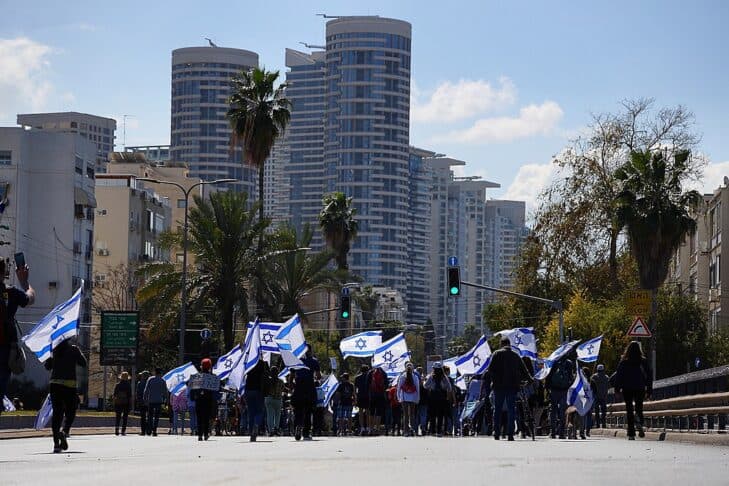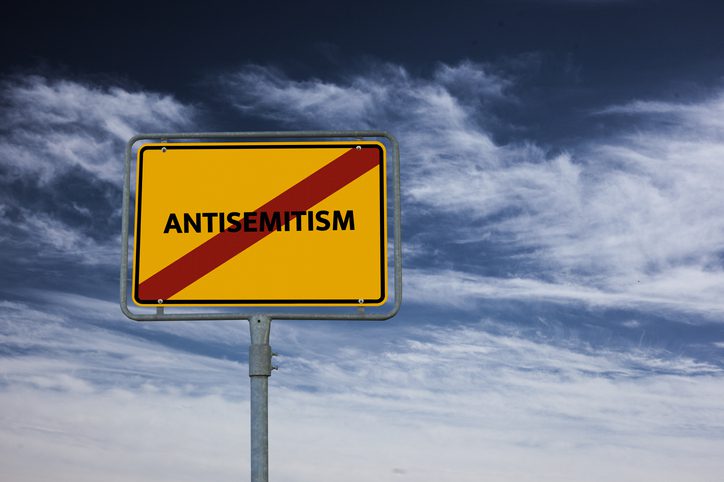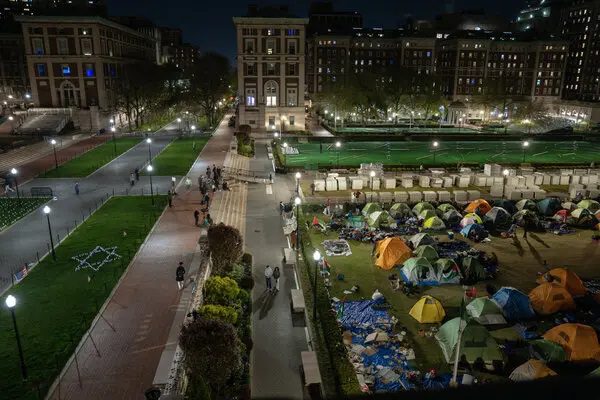By Rich Tenorio
When Israelis criticize the policy proposals of their own government, to what extent does it threaten to encourage antisemitic incidents in the United States? That’s the question posed to experts in the Jewish community and campus spheres in the Boston area.
Since January 2023, protesters in Israel have demonstrated against the Benjamin Netanyahu government for such reasons as its calls for change in the country’s judiciary. These protests have continued in Israel, with additional demonstrations taking place in Boston. Meanwhile, other protests in the area have demonstrated against Israel for additional reasons, including the charge that it is an apartheid state that pursues deadly policies against Palestinians in the West Bank. These latter demonstrations include a Feb. 8 gathering at Brandeis University—a college associated with Judaism and named after former Supreme Court justice Louis Brandeis, an American supporter of Zionism.
Brandeis professor Jonathan Sarna, who directs the Schusterman Center for Israel Studies and teaches American Jewish history, draws a clear distinction between protests against Israeli government policies and protests calling Israel an apartheid regime.
“Hundreds of thousands of Israelis are demonstrating against the proposed legislation about the Supreme Court,” Sarna said. “None of those Israelis are saying or justifying, ‘Let’s dismantle the State of Israel and send all of the Jews into exile, whatever their fate may be,’” Sarna said. “That’s unthinkable.”
Miriam Berkowitz Blue, executive director of the Hillel Council of New England, has not heard of any recent antisemitic incidents at the colleges her council is affiliated with—Bentley University, Boston College, Curry College, Emerson College, Lesley University, Simmons University and Suffolk University.
She considers firsthand experience with Israel to be valuable in educating college students about the current situation in the country—experiences such as alternative spring break, a service trip that sends local undergraduates to Israel, with support from CJP.
Jewish students on this trip, Blue said, “have a lot of questions. They look forward to being on the ground, experiencing [things] firsthand, having a much better understanding by talking to Israeli citizens living here and experiencing this every day, and going back to their respective campuses, explaining the situation and offering perspectives that they share with colleagues, friends and classmates.”

Several sources remember previous occasions when Israelis or American Jews participated in large-scale protests against Israeli government policies. Blue recalls the November 1995 peace rally in Tel Aviv at which Prime Minister Yitzhak Rabin was assassinated by a right-wing Israeli. Sarna notes that Jewish students at Brandeis have urged Israel to end the occupation of the West Bank and withdraw behind the Green Line, pre-1967 border.
“There is a thin line, but a clear line, between disagreeing with various policies and protesting, and using language that really promotes murder, terrorism and the undermining of the state as a whole,” Sarna said.
Not only do the current protests in Israel show no sign of stopping, but they are attracting significant numbers, including an estimated half-million people recently, according to CNN.
Jeremy Burton, executive director of the Jewish Community Relations Council of Greater Boston, sees protest against governmental policy as a healthy expression of democracy, whether in Israel or the U.S.
“Israel has the right and responsibility to have a civil democratic discourse, including protests against their own government,” Burton said. “Americans turn out to protest their own government. Nobody calls such situations anti-American.”
He added: “A forming of the question says, ‘We should be so afraid of having a discourse about democracy that we should not even have it.’ I don’t think that’s right.” Regarding fears of protests in Israel “because they might inspire people who are delegitimizing Israel,” he said that the latter “don’t need further inspiration to do this. We should not be afraid to have a conversation about Israel because of that.”
Rich Tenorio covers antisemitism news for JewishBoston.com. His work has appeared in international, national, regional and local media outlets. He is a graduate of Harvard College and the Columbia University Graduate School of Journalism. He is also a cartoonist. Email him at rich@jewishboston.com.




